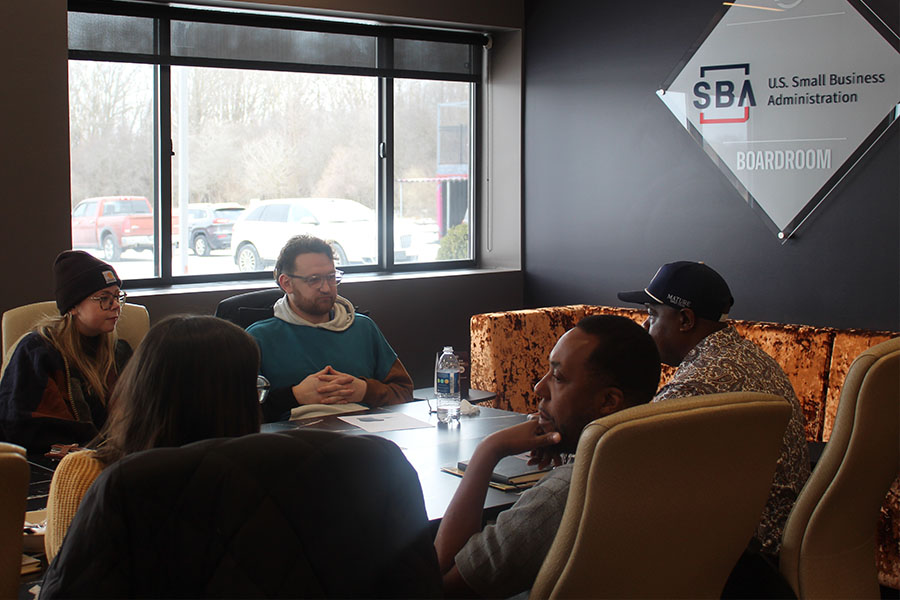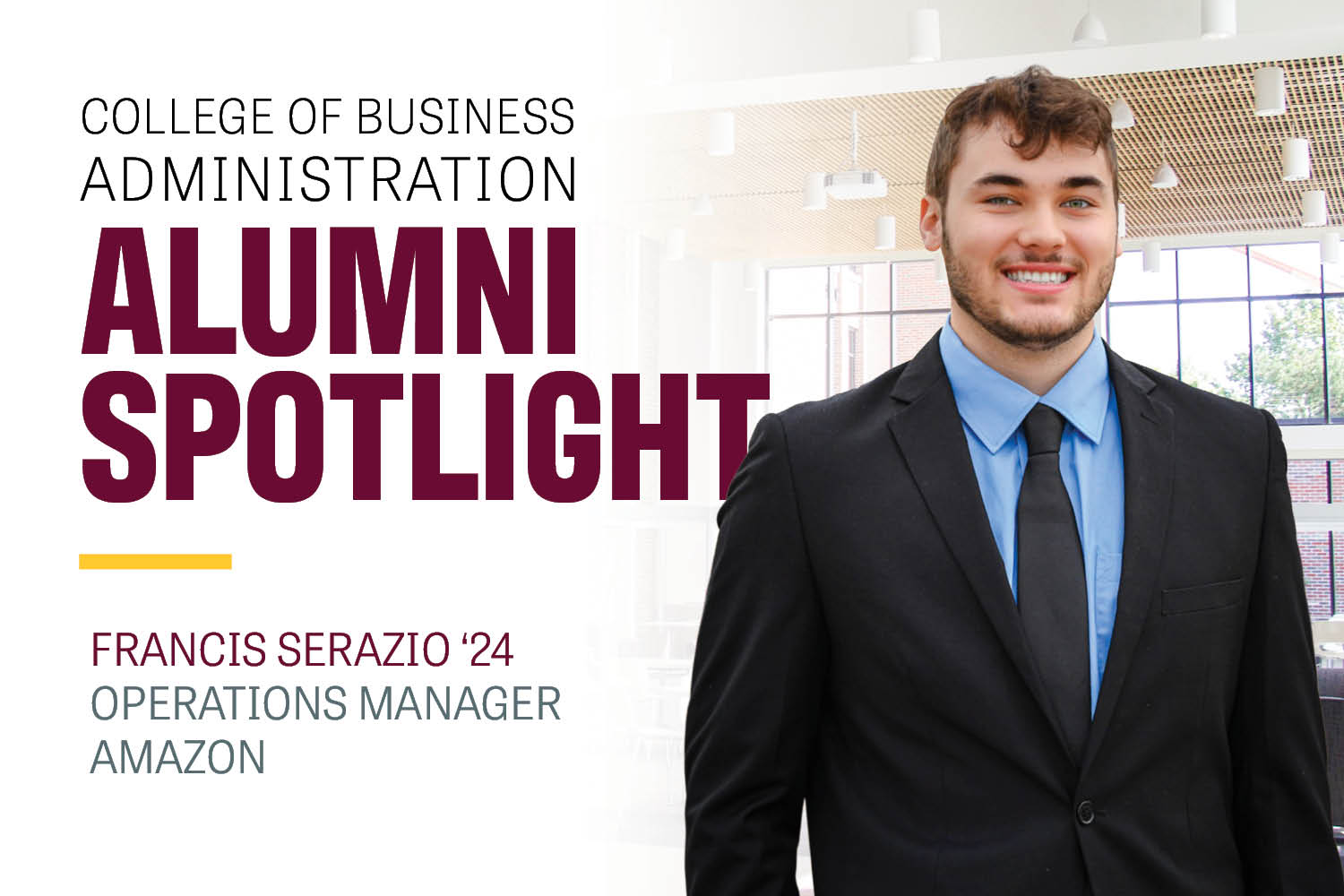More than startups: Rethinking what entrepreneurship really means
CMU experts challenge common myths and reveal how entrepreneurial thinking applies far beyond business ownership
When most people hear the word entrepreneur, they picture a bold founder launching a startup from scratch. And that vision isn’t wrong—just incomplete.
At Central Michigan University, entrepreneurship faculty are helping students see the full spectrum of entrepreneurial paths. Yes, it includes starting your own business. But it also includes taking over the family company, innovating within a corporation, or launching mission-driven ventures that create social impact.
“It doesn’t mean you’re ever going to start a business,” said Julie Messing, director of CMU’s Isabella Bank Institute for Entrepreneurship. “But it could. What matters is how you see the world—how you look at things in a way to solve problems.”
What is entrepreneurship? A mindset—and a major
Entrepreneurship is one of the fastest-growing disciplines in business education, but it’s still widely misunderstood. According to faculty, it’s more about mindset than job title.
“Entrepreneurship is more than starting a business—it’s a mindset fueled by curiosity and creativity,” said entrepreneurship department chair Spenser Robinson. “It equips you to see opportunity where others see obstacles.”
"Entrepreneurship majors and minors learn how to identify market needs, design solutions, and adapt in dynamic environments," he said. "Whether you're promoting your dance or music brand, launching a fashion label, building a following around your writing, or expanding a family business, entrepreneurship gives you the tools to define and pursue your own version of success."
“Our students are artists, musicians, leaders, content creators, social change agents, business founders, and STEM innovators,” said faculty member John Gustincic. “That diversity creates an environment where students learn by doing—and learn from one another.”
Entrepreneurship students don’t just learn how to start companies—they explore how to acquire and grow existing businesses, evaluate opportunities, manage resources, and drive innovation. At its core, the program teaches students how to turn ideas into action.
Six entrepreneurial pathways—and startups are just one
CMU students explore a wide variety of entrepreneurial options. Messing introduces them in her introductory course:
- Startup founder: Launching something from the ground up.
- Family business successor: Continuing or evolving an existing business.
- Franchise owner: Taking on a proven model with room for personal innovation.
- Business acquirer: Buying an existing company and leading it forward.
- Social entrepreneur: Creating mission-driven ventures that address social needs.
- Corporate innovator: Driving change and product development within large organizations.
“Startups are a big part of what we do,” Messing said. “But not every student wants to start something from scratch—and that’s okay. These pathways let them find the version of entrepreneurship that fits their goals and risk tolerance.”
Trade tools and nontraditional paths
If startups aren't the only pathway into entrepreneurship, what do some common paths look like? Gustincic points out that many students pursue business ownership in trades and applied fields.
“We’ve had students come in with an interest in operating construction or trade-based businesses,” he said. “They knew that to stay competitive, they’d need to approach their trade in an innovative way—and entrepreneurship gave them that edge.”
The program also supports students who come in without a clear business idea, helping them develop their interests into action.
“Most of our students enter the program with a general interest in owning a business someday, but without a specific idea in mind,” said entrepreneurship faculty member Lauren Zettel. “We start by helping them explore their interests and identify meaningful consumer problems they’re passionate about solving. From there, they develop the confidence and tools to turn these insights into viable opportunities.”
Built for the real world
The entrepreneurship curriculum blends theory with hands-on application. Faculty emphasize real-world relevance, adaptability, and a focus on meaningful problem-solving.
“The curriculum is experiential in nature,” said entrepreneurship faculty member Howard Haines. “You learn through doing and test out the theoretical knowledge.”
“The program equips students with skills to create value by organizing sustainable economic systems, envisioning and leading in uncertain conditions, and acquiring the resources and support needed to launch and manage new products and services,” said Haines.
This real-world grounding extends to how students think about business succession. In an episode of CMU’s The Search Bar podcast, Messing explored the wave of small business transitions happening as baby boomers retire—and how CMU students are learning to step into those leadership roles.
Mentorship and connection
Entrepreneurship at CMU is also about connection. Students regularly engage with alumni and professionals, including those just a few years ahead in their careers.
“We bring in a plethora of entrepreneurs for them to meet and learn from,” Messing said. “They see themselves in these speakers—and realize what’s possible.”
Access to lived experience helps students build confidence, gain perspective, and understand the practical realities of the paths they’re considering. Mentorship is often informal, but it plays a crucial role in students’ success.
Ready to explore your own path?
Whether you’re building a business or building a mindset, CMU’s entrepreneurship program can help you launch what’s next. Learn more at https://www.cmich.edu/academics/colleges/college-business-administration/departments/entrepreneurship.





